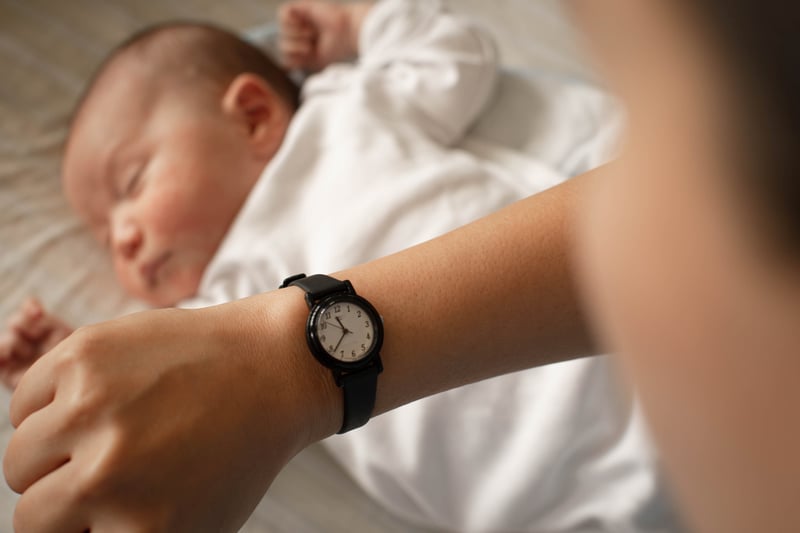(330) 876-1228
8507 Main StreetKinsman, OH 44428
(330) 876-1229

Elation and exhaustion often go hand in hand when you're a parent to a baby.
When sleep starts to seem like a fantasy, it's good to know that the experts say there is a time when most babies will sleep through the night. Here, they share when that is, offer guidance on what impacts your baby's sleep and give some tips on how you can help guide them to sleep longer.
What can impact your baby's sleep?
UC Davis pediatrician Lena van der List explained that one of the factors impacting your baby's ability to sleep through the night is that they aren't born with a clear idea of what night is.
"It takes a while for the baby to distinguish between day and night. This usually happens around 2 months of age,"she said recently in an interview.
The various stages of your baby's development also play a key role in influencing their sleep patterns. Because of the changes at each stage, "baby sleep regression" can happen.
The Sleep Foundation has documented five stages when these sleep disruptions typically occur, and the main reasons why:
Of course, another main factor that impacts babies' ability to sleep through the night is that they wake up hungry. Babies eat every 2 to 3 hours up to about age 2 months and every 3 to 4 hours between the ages of 2 and 6 months, according to HealthyChildren.org.
When do babies sleep through the night?
The Sleep Foundation states that most babies sleep through the night by age 6 months, which means they have six hours of uninterrupted sleep.
However, parents who have babies 6 months and older who aren't yet sleeping through the night shouldn't necessarily worry.
A study published recently in the journal Sleep Medicine that followed 5,700 children found that sleep patterns varied considerably among babies during their first two years of life. The study was conducted by the Finnish Institute for Health and Welfare (THL) and the University of Turku.
"Now we know that the individual differences are very large and that patterns relating to falling asleep, waking up, staying awake at night and sleeping rhythms often develop at different rates," THL research manager Juulia Paavonen said when the research was published.
Research published in the journal Pediatrics revealed similar findings. About 38% of parents in the study said their babies didn't sleep six hours straight by age 6 months, and about 28% said they weren't doing so by age 12 months.
How can I help my baby sleep through the night?
Cleveland Clinic pediatrician Dr. Noah Schwartz explained in an article that sleep training techniques for parents are used to help babies realize they can fall asleep by themselves. He noted that you can start using these strategies once your baby reaches 4 to 6 months of age.
"Essentially, you're getting your baby to realize they can put themselves to sleep or self-soothe,"Schwartz said.
Here are four sleep guidance methods that he recommends:
"Oftentimes, sleep training techniques overlap and parents combine methods, which is perfectly fine,"Schwartz noted. "It's all about finding what works best for you as a parent and how your infant responds."
